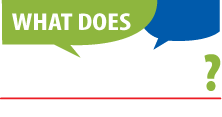Phrases starting with the letter: A B C D E F G H I J K L M N O P Q R S T U V W X Y Z
Definition of: negative
(neg′ə·tiv) adjective
1. Containing contradiction or denial; expressing negation: opposed to affirmative.
2. Characterized by denial or refusal: a negative reply.
3. Exhibiting or characterized by absence of that which is essential to positive or affirmative character: the opposite of positive.
4. Phot. Exhibiting the reverse; showing dark for light and light for dark: a negative plate or film.
5. Math. a Denoting a direction or quality the opposite of another assumed as positive: usually denoted by the minus sign (–). b Less than zero; to be subtracted; minus: said of quantities.
6. Geom. Situated or measured downward from the axis of X or to the left of the axis of Y.
7. Electr. Denoting a type of electricity characterized by an excess of electrons on a charged body: opposed to positive. It is similar to that produced on a resinous object after rubbing with wool.
8. Biol. Describing a plant or animal response directed away from or in opposition to a stimulus.
9. Med. Indicating the absence of a suspected condition, or the absence of certain bacteria. See synonyms under PASSIVE.
—noun
1. A proposition, word, or act expressing refusal or denial: My request received a negative.
2. The side of a question that denies; also, a negative decision.
3. The right to veto.
4. A photograph having the lights and shades reversed, used for printing positives.
5. Gram. A particle employing or expressing denial. The principal negative is not.
6. Electr. a Negative or frictional electricity. b The negative plate of a voltaic cell.
7. Math. A negative sign or quantity.
—double negative Gram. The use of two negatives in the same statement, as in “I didn't see nobody.” ♦ This usage is a descendant of a formation native to the Germanic languages and was regularly used in Old and Middle English to intensify negation. It survives in Modern English, but is now considered substandard on analogy with Latin, where a double negative becomes an affirmative. Such statements as “I am not unhurt,” however, are standard English, and have the effect of weak affirmatives.
—v.t. ·tived, ·tiv·ing
1. To deny; contradict.
2. To refuse to sanction or enact; veto.
3. To prove to be false; disprove.
4. To neutralize; counteract. [<L negativus <negare deny]
—neg′a·tive·ly adverb
—neg′a·tive·ness, neg·a·tiv·i·ty (neg′ə ·tiv′ə·tē) noun

Comment about this word, ask questions, or add new information about this topic: